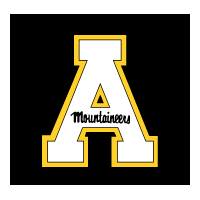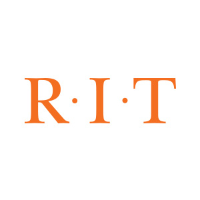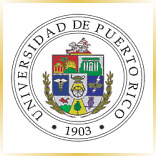What do they do?
Apply theory and principles of environmental engineering to modify, test, and operate equipment and devices used in the prevention, control, and remediation of environmental problems, including waste treatment and site remediation, under the direction of engineering staff or scientists. May assist in the development of environmental remediation devices.
Also known as:
Air Quality Instrument Specialist, Engineer Technician, Engineering Technician, Environmental Engineering Assistant, Environmental Engineering Technician, Environmental Field Technician, Environmental Technician, Field Technician, Haz Tech (Hazardous Technician)
-
4.5%
Change
Ranks #39 in job growth rate70Job Openings
Ranks #8 in net job growth
Colleges with the most graduates that become Environmental Engineering Technologists and Technicians
-
The University of Findlay
Findlay, OH
-
Appalachian State University
Boone, NC
-
Rochester Institute of Technology
Rochester, NY
-
University of Puerto Rico-Aguadilla
Aguadilla, PR
-
Santiago Canyon College
Orange, CA
Looking for colleges that offer a specific major? Use the College Match Tool to find your best-matched schools and discover your estimated Net Price!
- Doctorate or Professional Degree (1%)
- Master's degree (3%)
- Bachelor's degree (18%)
- Associate's degree (20%)
- Some college, no degree (30%)
- High school diploma equivalent (24%)
- Less than high school diploma (4%)
Most Popular Majors that prepare Environmental Engineering Technologists and Technicians
-
#1
-
Degrees Granted
388
-
Female Students
86
-
Male Students
302
-
Median Starting Salary
$56,989
-
-
#2
-
Degrees Granted
86
-
Female Students
51
-
Male Students
35
-
Median Starting Salary
$42,090
-
-
#3
-
Degrees Granted
52
-
Female Students
23
-
Male Students
29
-
Median Starting Salary
$56,989
-
People in this career often have these skills:
- Reading Comprehension - Understanding written sentences and paragraphs in work-related documents.
- Active Listening - Giving full attention to what other people are saying, taking time to understand the points being made, asking questions as appropriate, and not interrupting at inappropriate times.
- Critical Thinking - Using logic and reasoning to identify the strengths and weaknesses of alternative solutions, conclusions, or approaches to problems.
- Active Learning - Understanding the implications of new information for both current and future problem-solving and decision-making.
- Speaking - Talking to others to convey information effectively.
- Science - Using scientific rules and methods to solve problems.
- Monitoring - Monitoring/Assessing performance of yourself, other individuals, or organizations to make improvements or take corrective action.
People in this career often know a lot about:
- Engineering and Technology - Knowledge of the practical application of engineering science and technology. This includes applying principles, techniques, procedures, and equipment to the design and production of various goods and services.
- Mathematics - Knowledge of arithmetic, algebra, geometry, calculus, statistics, and their applications.
- Customer and Personal Service - Knowledge of principles and processes for providing customer and personal services. This includes customer needs assessment, meeting quality standards for services, and evaluation of customer satisfaction.
- English Language - Knowledge of the structure and content of the English language including the meaning and spelling of words, rules of composition, and grammar.
- Chemistry - Knowledge of the chemical composition, structure, and properties of substances and of the chemical processes and transformations that they undergo. This includes uses of chemicals and their interactions, danger signs, production techniques, and disposal methods.
People in this career often have talent in:
- Written Comprehension - The ability to read and understand information and ideas presented in writing.
- Deductive Reasoning - The ability to apply general rules to specific problems to produce answers that make sense.
- Inductive Reasoning - The ability to combine pieces of information to form general rules or conclusions (includes finding a relationship among seemingly unrelated events).
- Oral Comprehension - The ability to listen to and understand information and ideas presented through spoken words and sentences.
- Oral Expression - The ability to communicate information and ideas in speaking so others will understand.
- Problem Sensitivity - The ability to tell when something is wrong or is likely to go wrong. It does not involve solving the problem, only recognizing that there is a problem.
- Information Ordering - The ability to arrange things or actions in a certain order or pattern according to a specific rule or set of rules (e.g., patterns of numbers, letters, words, pictures, mathematical operations).
- Near Vision - The ability to see details at close range (within a few feet of the observer).
- Speech Clarity - The ability to speak clearly so others can understand you.
- Category Flexibility - The ability to generate or use different sets of rules for combining or grouping things in different ways.
People in this career often do these activities:
- Dispose of hazardous materials.
- Maintain operational records or records systems.
- Document design or operational test results.
- Prepare technical or operational reports.
- Analyze test or validation data.
- Collect samples of raw materials or finished products.
- Test performance of electrical, electronic, mechanical, or integrated systems or equipment.
- Maintain clean work areas.
- Package materials for transport.
- Investigate system, equipment, or product failures.
- Monitor processes for compliance with standards.
- Inspect facilities or sites to determine if they meet specifications or standards.
- Prepare detailed work plans.
- Evaluate designs or specifications to ensure quality.
- Analyze operational data to evaluate operations, processes or products.
- Assess product or process usefulness.
- Investigate the environmental impact of projects.
- Advise customers on the use of products or services.
- Provide technical guidance to other personnel.
- Prepare contracts, disclosures, or applications.
- Schedule operational activities.
- Create models of engineering designs or methods.
- Supervise production or support personnel.
- Research engineering aspects of biological or chemical processes.
- Purchase materials, equipment, or other resources.
This page includes data from:

 Occupation statistics: USDOL U.S. Bureau of Labor Statistics Occupational Employment Statistics
Occupation statistics: USDOL U.S. Bureau of Labor Statistics Occupational Employment Statistics









